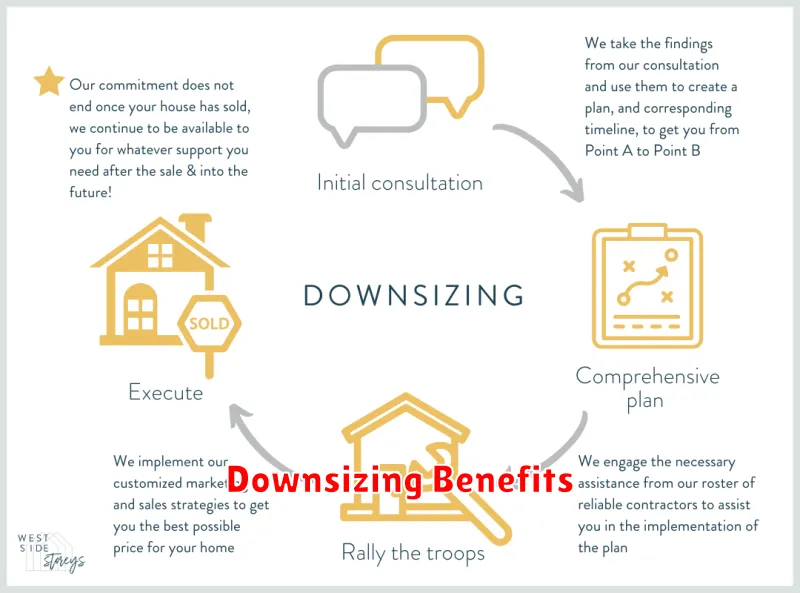Are you feeling overwhelmed by the constant pressure to keep up with the Joneses? Are you tired of feeling like you’re constantly chasing a financial goal that seems perpetually out of reach? If so, you’re not alone. Many people are struggling to make ends meet, and the cost of living continues to rise. But there’s good news: you can take control of your finances and achieve financial freedom by downsizing your lifestyle.
Downsizing your lifestyle doesn’t mean giving up on your dreams or sacrificing your happiness. It simply means making conscious choices about how you spend your money and resources. By prioritizing your needs over your wants and eliminating unnecessary expenses, you can free up cash flow, reduce debt, and build a more secure financial future.
Assessing Your Current Lifestyle and Expenses

Before you can effectively downsize your lifestyle, it’s crucial to first understand where you stand financially. This involves taking a comprehensive look at your current spending habits and evaluating the necessity of each expense.
Start by creating a detailed budget that meticulously tracks all your income and expenses over a period of time, ideally a month. Categorize your expenses into essential needs (housing, utilities, groceries), discretionary spending (entertainment, dining out), and debt payments. This will provide you with a clear picture of where your money is going.
Once you have a comprehensive budget in place, it’s time to analyze each expense. Ask yourself:
- Is this a necessity or a want?
- Can I reduce or eliminate this expense?
- Do I get value for my money?
This critical self-reflection will help you identify areas where you can cut back without significantly impacting your quality of life.
Remember, downsizing your lifestyle isn’t about deprivation; it’s about prioritizing your needs and values. By understanding your current spending patterns, you’ll be better equipped to make informed decisions about how to simplify and improve your financial well-being.
Identifying Areas Where You Can Reduce Spending
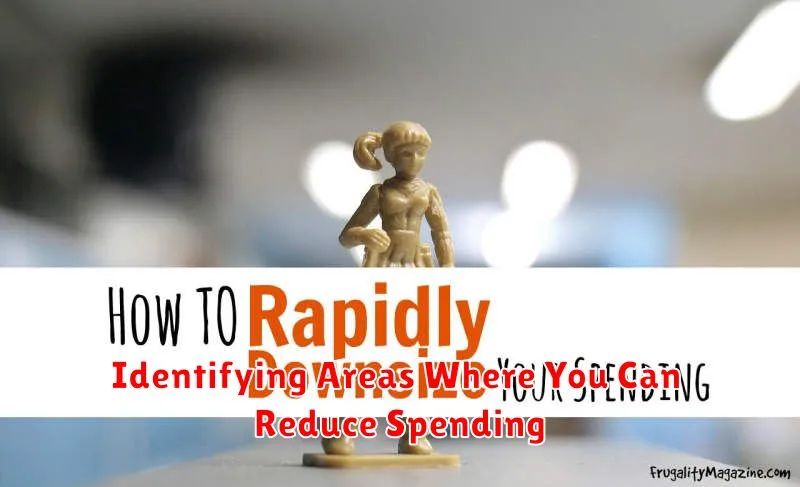
Downsizing your lifestyle can be a rewarding experience, but it also requires taking a critical look at your spending habits. Here are some key areas to focus on when identifying where you can reduce spending:
Housing: Housing is often the largest expense for many individuals. Consider downsizing to a smaller home or apartment, exploring alternative housing options like shared living, or moving to a lower-cost area.
Transportation: Rethink your transportation needs. Can you switch to public transportation, cycling, or walking for shorter distances? Exploring carpooling or ride-sharing options can also lead to savings.
Food: Eating out frequently can significantly impact your budget. Cooking at home more often, planning meals in advance, and reducing food waste can lead to considerable savings.
Entertainment: Entertainment expenses can easily add up. Evaluate your entertainment choices and consider free or low-cost options such as visiting parks, hiking, reading, or engaging in hobbies.
Subscriptions and memberships: Regularly review your subscriptions and memberships. Cancel those you no longer use or need, and consider alternative, cheaper options.
Shopping habits: Make conscious choices about your shopping habits. Avoid impulse purchases, shop for deals, and prioritize needs over wants.
Personal care: Explore budget-friendly alternatives for personal care products and services, such as using generic brands, cutting your own hair, or trying DIY beauty recipes.
By carefully identifying these areas of spending and making mindful choices, you can create a more sustainable and financially secure lifestyle while enjoying the benefits of downsizing.
Housing Costs: Exploring Downsizing Options
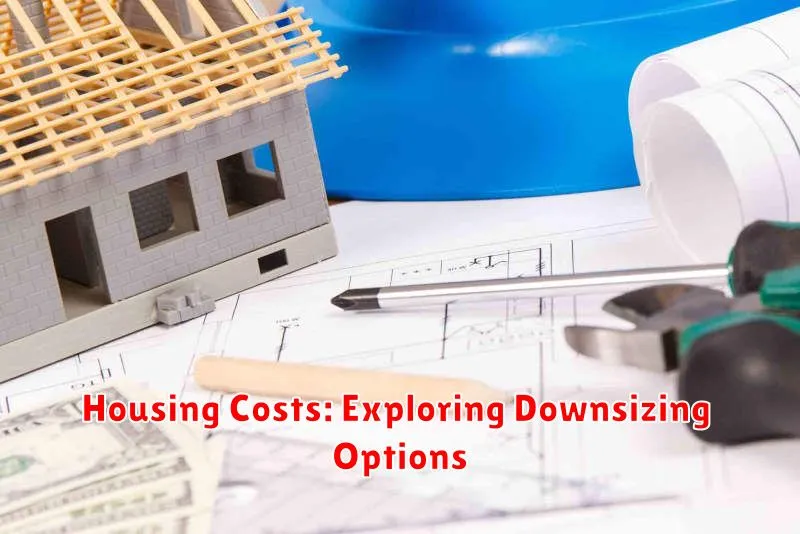
One of the most significant expenses in many people’s lives is housing. Downsizing your home can be a powerful way to reduce this cost, freeing up more of your income for other priorities.
If you’re currently living in a larger home than you need, consider the following options:
- Move to a smaller house or condo: This is the most direct way to downsize your housing costs. You’ll likely have a lower mortgage payment, lower property taxes, and lower utility bills.
- Move to a less expensive neighborhood: If you’re willing to trade some amenities or proximity to the city, you can often find more affordable housing in less desirable areas.
- Rent out a room or your basement: This can help offset the cost of your mortgage, especially if you’re able to secure a long-term tenant.
- Consider a tiny house or alternative living arrangement: Tiny homes and other alternative living arrangements can significantly reduce your housing costs and offer a simpler, more sustainable lifestyle.
Before making any decisions, it’s essential to carefully assess your needs and budget. Factor in the cost of moving, potential maintenance, and any other associated expenses. Downsizing can be a significant life change, but it can also provide significant financial benefits, allowing you to live more comfortably and pursue your financial goals.
Transportation: Evaluating Car Ownership and Alternatives
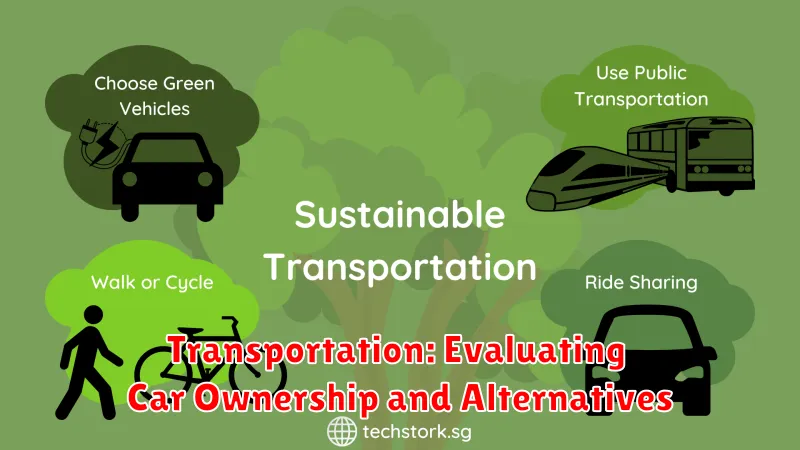
Transportation is a major expense for most people, and car ownership is often a significant part of that cost. If you’re looking to downsize your lifestyle and save money, evaluating your transportation needs and considering alternatives to car ownership can be a smart move. Public transportation, bike riding, and walking are all viable options, especially if you live in a city or town with good infrastructure. Ridesharing services like Uber and Lyft can also be cost-effective alternatives to owning a car, particularly for occasional trips.
While owning a car offers convenience and flexibility, it also comes with significant expenses, including car payments, insurance, gas, maintenance, and parking. These costs can add up quickly, especially if you’re driving a newer or luxury vehicle. By exploring alternative transportation options, you can potentially save thousands of dollars each year.
Consider the following factors when evaluating your transportation needs:
- Your daily commute: Do you live close to your workplace or school? Are there convenient public transportation options available?
- Your lifestyle: How often do you need to drive long distances? Do you have kids who need to be transported?
- Your budget: How much can you afford to spend on transportation each month?
By carefully evaluating your transportation needs and considering alternatives to car ownership, you can save money and simplify your life.
Entertainment and Leisure: Finding Affordable Ways to Enjoy Life

Downsizing your lifestyle doesn’t mean giving up on entertainment and leisure. In fact, it can often lead to a more fulfilling and enjoyable experience. By focusing on activities that bring you joy without breaking the bank, you can discover new passions and create lasting memories.
Consider these affordable ways to enjoy your leisure time:
- Explore nature: Embrace the beauty of your surroundings by going for hikes, picnics, or bike rides in local parks. You can also enjoy free events at nature centers or botanical gardens.
- Embrace free entertainment: Attend free concerts, open-air movies, or community events in your area. Many cities also offer free museum days or discounted admission during specific times.
- Get creative: Unleash your inner artist by taking up a hobby like painting, writing, or photography. You can find affordable supplies at thrift stores or online, and there are countless free tutorials available online.
- Connect with others: Organize game nights, potlucks, or movie nights with friends and family. These social gatherings can provide entertainment while strengthening your relationships.
- Learn a new skill: Take advantage of free online courses or visit your local library for books and resources. You can learn anything from coding to cooking to playing a musical instrument.
By embracing affordable entertainment and leisure options, you can downsize your lifestyle without sacrificing the joys that make life worth living. Remember, true happiness isn’t found in material possessions but in meaningful experiences and connections.
The Emotional and Psychological Aspects of Downsizing
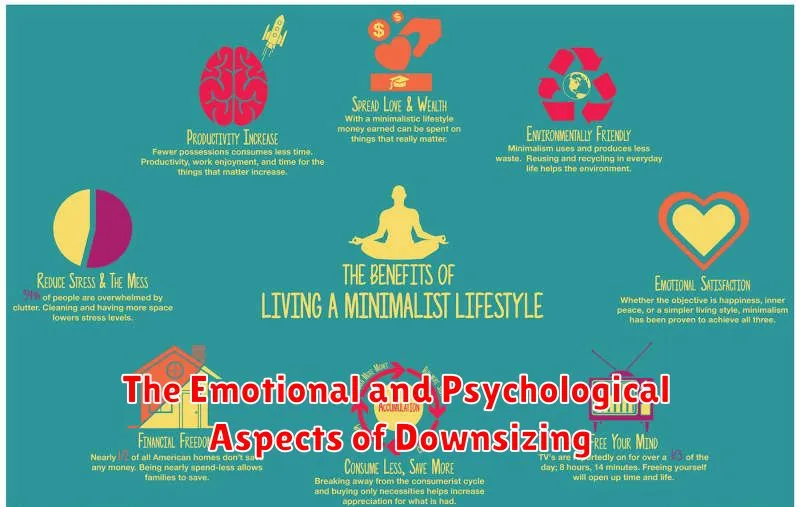
While downsizing your lifestyle often brings significant financial benefits, it’s important to acknowledge the emotional and psychological aspects that come with it. Downsizing can feel like a loss, especially if you’ve spent years building your life around a larger home and possessions. You might experience feelings of grief, regret, or anxiety about letting go of familiar things. The process can be stressful and require you to confront the memories and emotions associated with your belongings.
However, despite the challenges, downsizing can also be a liberating experience. It can be a chance to simplify your life, declutter, and focus on what truly matters. By letting go of material possessions, you may find yourself with more time, energy, and resources to pursue your passions and enjoy meaningful relationships.
It’s crucial to approach downsizing with a mindful and positive attitude. Think about it as an opportunity for growth and change. By embracing the process and focusing on the benefits it can bring, you can navigate the emotional challenges and emerge with a renewed sense of purpose and well-being.
Financial Freedom: How Downsizing Can Help You Achieve Your Goals
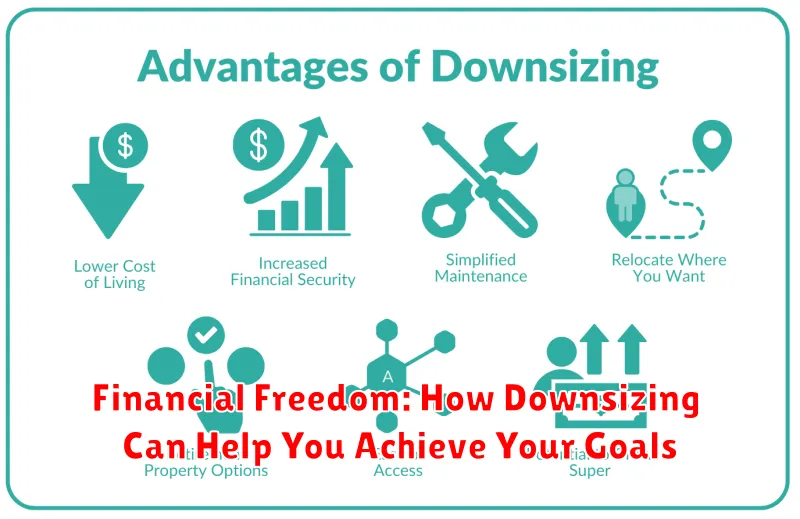
Downsizing your lifestyle can be a powerful tool for achieving financial freedom. By reducing your expenses, you can free up more money to invest, pay off debt, or simply enjoy life. This can be especially beneficial if you are looking to retire early, travel the world, or pursue other dreams.
Downsizing can take many forms, from selling your home and moving into a smaller one, to simplifying your possessions and living more minimally. It can also involve making changes to your spending habits, such as eating out less or cutting back on unnecessary purchases.
The key is to identify areas where you can make changes that will have a significant impact on your financial well-being. Once you have a plan in place, you can start taking steps to downsize your lifestyle and achieve your goals. By making conscious choices about your spending and simplifying your life, you can pave the way for a more financially secure and fulfilling future.
Investing the Savings: Making Your Money Work for You
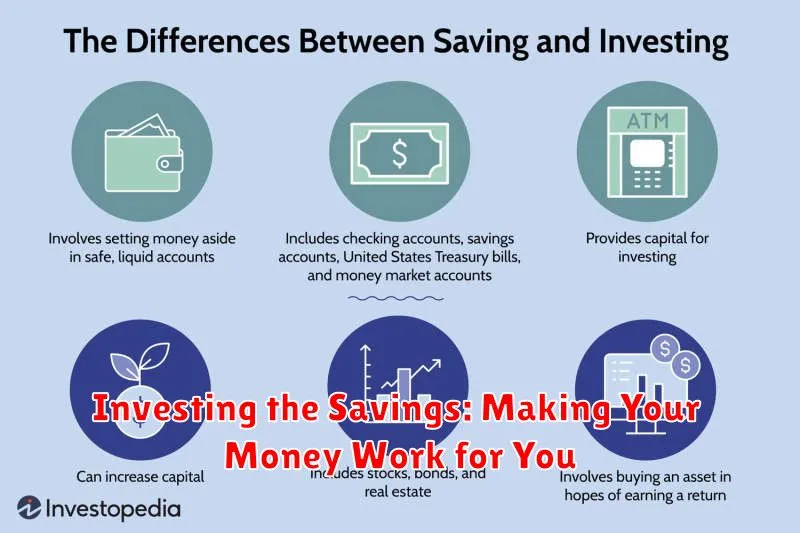
Downsizing your lifestyle can free up significant financial resources. Instead of letting this money sit idle, consider investing it to make it work for you.
Investing your savings can lead to long-term financial growth and security. You can explore various investment options, such as:
- Stocks: Owning a piece of a company and sharing in its potential profits.
- Bonds: Lending money to a company or government entity with the promise of repayment with interest.
- Mutual funds: Diversifying your investment by pooling money with other investors in a basket of securities.
- Real estate: Investing in property for potential rental income or appreciation in value.
Before investing, research thoroughly and understand your risk tolerance and financial goals. Consult with a financial advisor for personalized guidance. By investing your savings wisely, you can build a solid financial future and achieve your financial aspirations.
Real-Life Examples: Success Stories of People Who Downsized

Downsizing your lifestyle can be a daunting task, but it can also be incredibly rewarding. It’s not just about reducing your material possessions; it’s about simplifying your life and focusing on what truly matters. To inspire you, here are some real-life examples of people who embraced downsizing and reaped the financial benefits:
Joe and Sarah, a retired couple, downsized from a 3,000 square foot house to a cozy 1,500 square foot cottage. They sold their large home and used the proceeds to pay off their mortgage and invest in their future. This freed them from the burden of high housing costs and gave them the financial freedom to travel and pursue their passions. They found that their smaller home was more manageable and less expensive to maintain, allowing them to enjoy a comfortable retirement without worrying about money.
Mark, a young professional, traded his cramped apartment for a tiny house on wheels. This allowed him to ditch the high rent and live a minimalist lifestyle. He was able to save significantly on housing costs, which he used to pay down debt and invest in his future. By embracing a smaller living space, Mark gained greater financial flexibility and the freedom to travel and explore new places.
Emily, a single mother, downsized from a three-bedroom house to a two-bedroom apartment. She found that her family was spending too much time maintaining a large home and not enough quality time together. By downsizing, Emily reduced her monthly expenses and created a more intimate and comfortable living space for her family. She was able to use the extra money to pay for her children’s education and activities, improving their quality of life.

